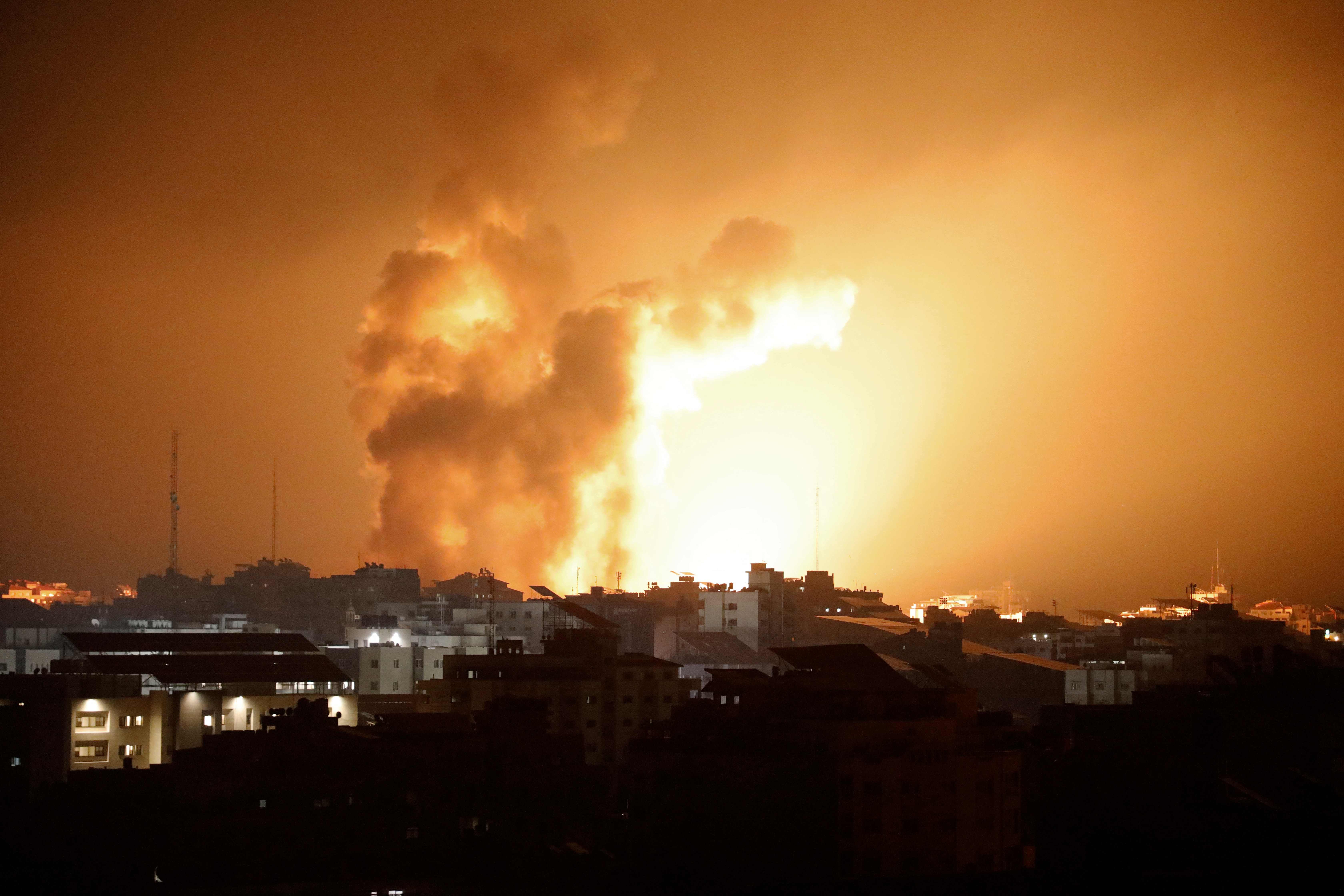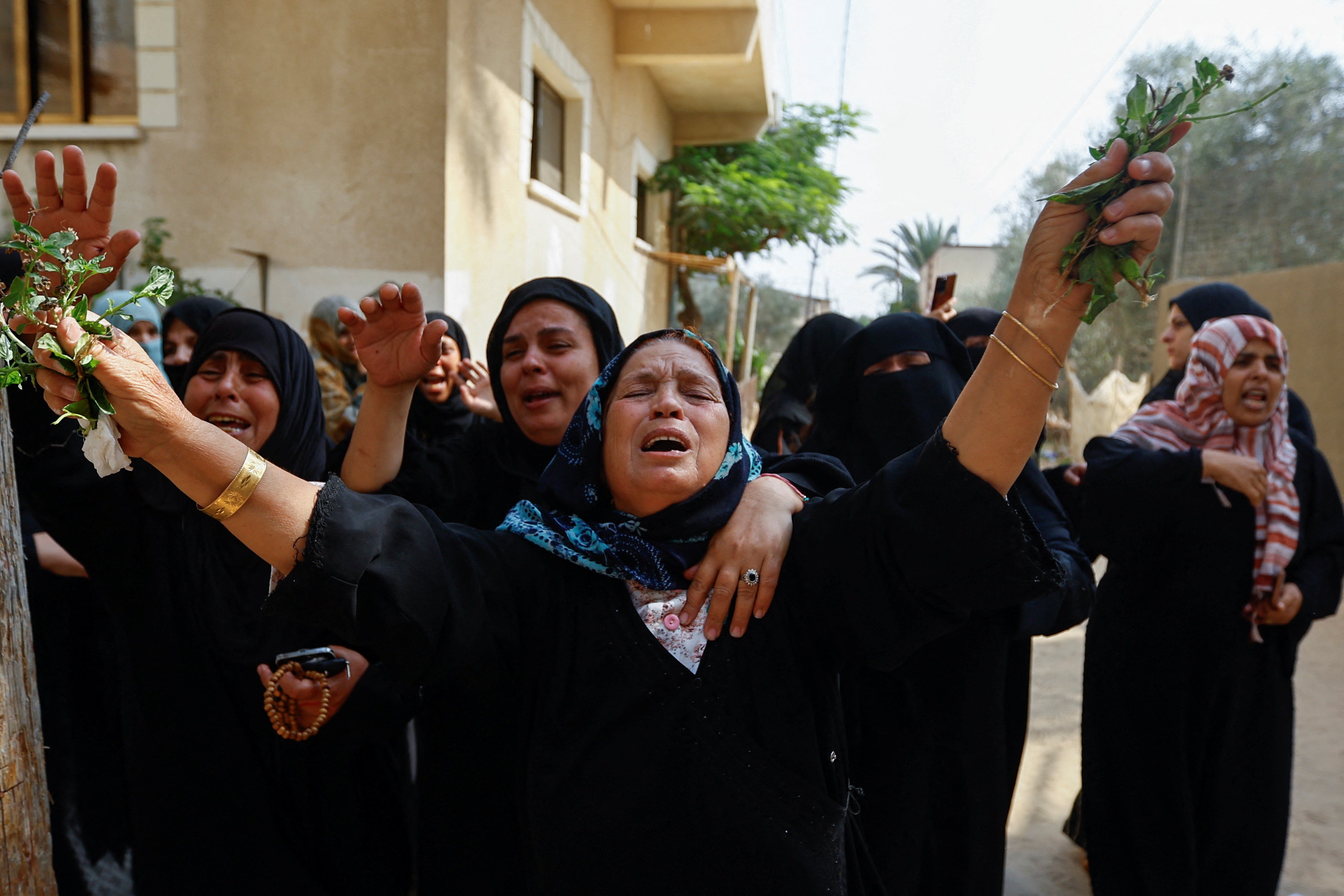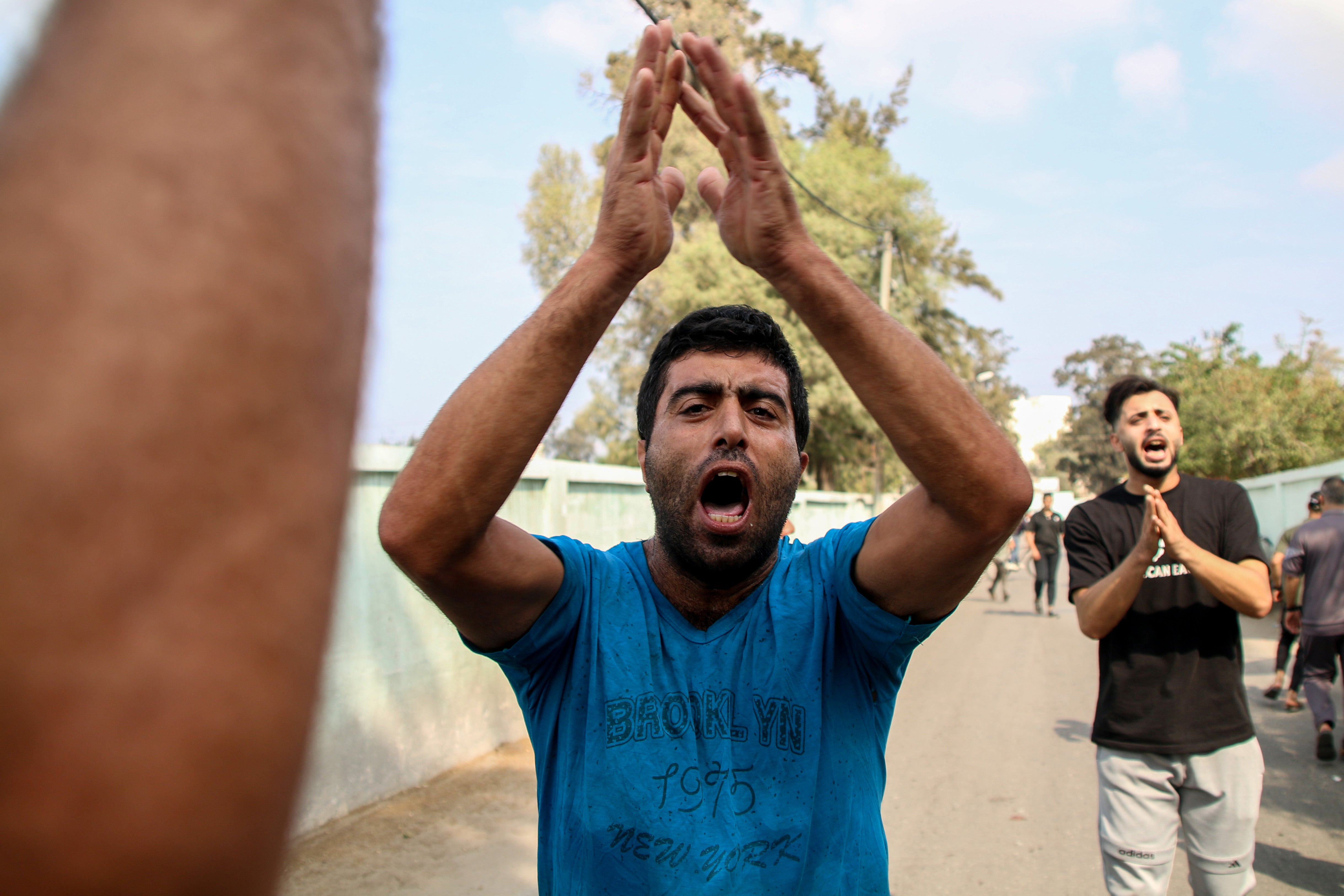Mapped: Where is the conflict happening in Israel and Gaza
Hundreds of Israeli and Palestinians killed as second day of battle wreaks destruction
Israeli strikes battered Gaza on Sunday after prime minister Benjamin Netanyahu declared his country is at war following the unprecedented surprise attack by Hamas.
Thousands of rockets were fired from Gaza into southern Israeli towns on Saturday morning while Hamas militants opened fire as they stormed borders into Israel.
The Israeli embassy said around 100 hostages had been taken by Hamas and the Israeli death toll has risen to at least 600.
Overnight, Israeli air strikes hit housing blocks, tunnels, a mosque and homes of Hamas officials in Gaza, killing more than 300 people, including 20 children, in retaliatory attacks described as “mighty vengeance” by Mr Netanyahu.

Israel‘s military, which faces questions over its failure to prevent the attack, said it had regained control of most infiltration points, killed hundreds of attackers and taken dozens more prisoner but was still fighting in some places.
It said it had deployed tens of thousands of soldiers in the area surrounding Gaza, a narrow strip that is home to 2.3 million Palestinians, and planned to evacuate all Israelis living around the frontier of the territory.
“We’re going to be attacking Hamas severely and this is going to be a long, long haul,” a military spokesman told a briefing with reporters.
In Gaza, Hamas spokesman Abdel-Latif al-Qanoua said the attack had been “in defence of our people”, adding the group’s fighters continued rocket strikes and were still conducting operations behind the lines.


Where is the fighting now?
Qassam Brigades, the armed wing of Hamas, said its fighters are still engaged in fierce clashes in several sites inside Israel, with fighting continuing in several areas bordering the Gaza strip, including Ofakim, Sderot, Yad Mordechai, Kfar Azza, Be’eri, Yatid and Kissufim.
Israeli media reported that hostages were released in Beeri and Ofakim, but when asked by AFP the army refused to offer details.
In Gaza, a densely populated strip where Hamas is headquartered, Israeli strikes have been targeting old Gaza City, Khan Younis, and Rafah, killing hundreds and injuring thousands.
The fighting has also spilled over to Lebanon where an exchange of strikes with the Hezbollah militant group has raised fears of a broader conflict.
What is the current travel advice?
The UK Foreign, Commonwealth & Development Office (FCDO) has advised British citizens to consult Israeli Home Front Command for more information: www.oref.org.il/en or call 104 if you are in Israel. Follow the instructions of local authorities if you are in these areas.
The FCDO advises against all travel to:
- Gaza
- the Sheba’a Farms and Ghajjar
- within 500m of the border with Lebanon (the ‘Blue Line’) east of Metula, including the northern edge of the town and and within 500m of the border with Syria (the ‘Alpha Line’).
The FCDO advises against all but essential travel to:
- areas north of and including Jenin city, Burqin and Arranah in the north of the West Bank. This includes Jenin refugee camp and all areas north of this until the Jalamah checkpoint for access to Israel
- the city of Nablus, Joseph’s Tomb, and the Balata and New Askar refugee camps near Nablus and the village of Huwara, south of Nablus
Join our commenting forum
Join thought-provoking conversations, follow other Independent readers and see their replies
Comments


Bookmark popover
Removed from bookmarks